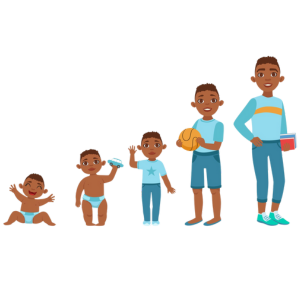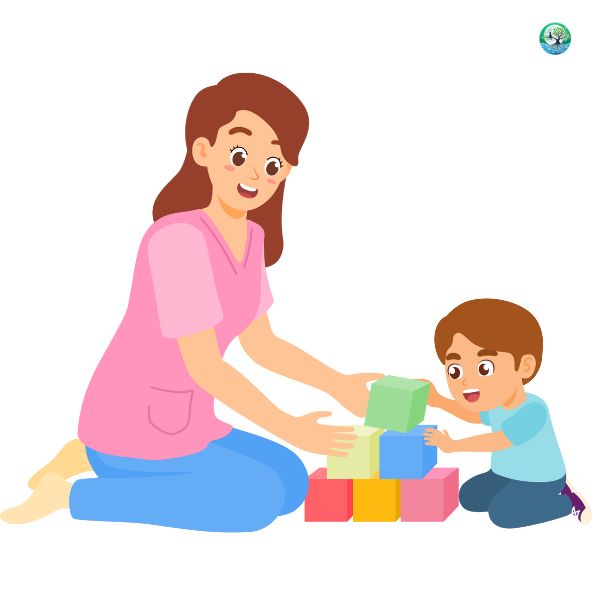
Dr Sathiya Ganesan’s
Every Child Can Learn, Grow, and Belong — With the Right Support at the Right Time.
Empowering Children to Learn, Grow, and Thrive with Personalised Developmental Support
Every child learns and develops in their own unique way. While some children meet milestones with ease, others may face delays in speech, motor skills, attention, learning, or behavior. These challenges can affect not only academic performance but also self-esteem, emotional growth, and social interaction.
Developmental & Educational Therapies are structured, individualized interventions that help children overcome these hurdles, build essential life skills, and reach their full potential.
Dr. Sathiya Ganesan, Consultant in Child & Adolescent Psychiatry, offers integrated developmental and educational care plans for children who need support across cognitive, motor, social, and academic domains.
Understanding Developmental & Educational Therapies
Bridging Gaps in Growth With Compassion and Evidence-Based Practice

Developmental and educational therapies address delays in areas such as communication, fine and gross motor skills, adaptive behavior, cognition, and school readiness. These therapies help children catch up, build confidence, and participate more fully in home, school, and social environments.
These therapies are especially helpful for children with:
- Autism Spectrum Disorder (ASD)
- ADHD and learning difficulties
- Speech and language delays
- Global developmental delay
- Down syndrome and intellectual disabilities
- Academic underachievement or school refusal
- Behavioural or emotional regulation issues
By addressing developmental gaps early, we promote long-term independence, social integration, and academic growth.

Signs a Child May Benefit from Developmental or Educational Therapy
- Delays in speech, movement, or learning milestones
- Trouble focusing, following instructions, or retaining information
- Difficulty with handwriting, coordination, or daily tasks
- Behavioural challenges or emotional outbursts in classroom settings
- Difficulty making friends or adjusting to school routines
- Struggles in reading, math, or expressive communication
- Low confidence, school refusal, or poor academic engagement
Early intervention leads to better outcomes — both in school and in life.
What Happens in Developmental & Educational Therapy?
Dr Sathiya Ganesan’s multidisciplinary team provides:
- Detailed assessments of developmental, cognitive, and academic skills
- Individualized education and therapy plans tailored to strengths and needs
- Skill-building sessions in motor skills, problem-solving, attention, and learning
- Remedial education for reading, math, and classroom performance
- Adaptive behavior training for everyday independence
- Parent and teacher coaching for continued support
Therapy is play-based, structured, and highly engaging — designed to make learning feel natural and fun.
Types of Therapies Offered
- Special Education Support – for children needing individualized academic help
- Occupational Therapy – for fine motor, sensory, and self-help skills
- Speech and Language Therapy – to improve communication and comprehension
- Behavioral Therapy (e.g., ABA) – for attention and impulse control
- Remedial Therapy – for learning disabilities in reading, writing, or math
- Life Skills Training – for older children needing functional independence
All therapies are coordinated under one care plan for seamless developmental progress.
Collaboration With Schools and Educators
Dr. Ganesan works closely with teachers and school counselors to:
- Align therapy goals with school curriculum
- Create Individualized Education Plans (IEPs)
- Provide classroom strategies for behavior and learning
- Track academic progress and emotional regulation in school
- Support transitions to inclusive classrooms or special programs
When school and therapy work together, children succeed faster and more confidently.
Parent Coaching and Home Support
Parents receive:
- Guidance on daily routines that promote learning
- Tips to reduce screen time and increase meaningful play
- Strategies for managing frustration or resistance
- Communication tools for better parent-child interaction
- Emotional support to cope with stress and expectations
Empowered parents create empowered learners.
Online Consultations and Remote Therapy Planning
Dr. Sathiya Ganesan offers online sessions to:
- Discuss developmental concerns with families
- Plan therapy strategies and routines
- Monitor school progress and emotional changes
- Train parents and caregivers in home-based interventions

Why Choose Developmental & Educational Therapies With Dr. Sathiya Ganesan?
With deep experience in child psychiatry, neurodevelopment, and academic collaboration, Dr. Sathiya Ganesan ensures your child receives:
- A personalised, goal-oriented care plan
- Evidence-based therapies tailored to each developmental area
- Family-friendly, school-integrated guidance
- Long-term support for learning, confidence, and independence
He helps children learn not just better, but brighter — and live not just with support, but with success.
Unlock Your Child’s Learning Potential — One Step at a Time
If your child is facing learning delays, emotional hurdles, or developmental gaps, the right support can make all the difference. Contact Dr. Sathiya Ganesan today to explore a therapy plan that builds brighter futures through tailored developmental care.
Are these therapies only for children with a diagnosis?
No. Any child struggling with learning, attention, or milestones can benefit — diagnosed or not.
Can my child get therapy even if they attend regular school?
Yes. Many children attend school and receive therapy after school hours or during special education time.
How soon can I expect improvement?
It varies. Some children respond quickly; others need long-term support. Early intervention always improves outcomes.
Will I be involved in therapy as a parent?
Absolutely. Parent involvement is critical. You’ll receive guidance, resources, and coaching throughout.
Can therapy be done online?
Some aspects (like parent training, academic coaching, and behavioral strategies) can be done remotely, while hands-on therapies may require in-person sessions.


